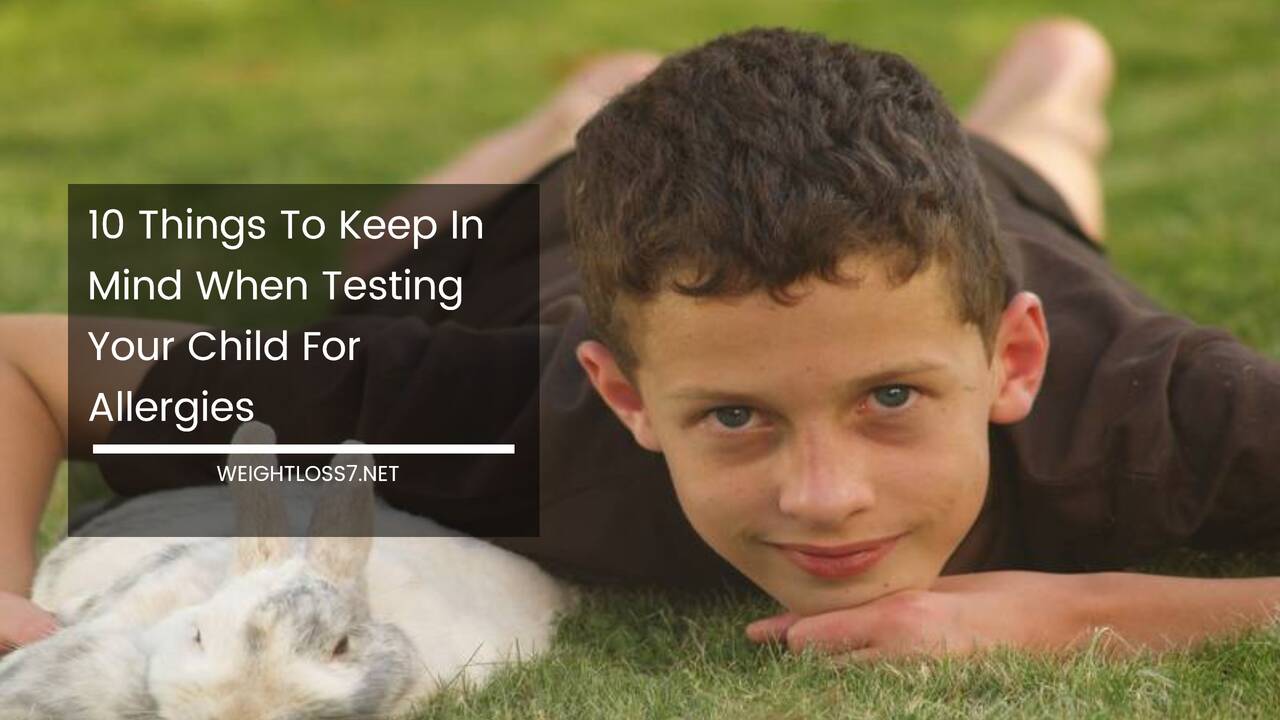10 Things To Keep In Mind When Testing Your Child For Allergies

Whether it’s the peak of allergy season or your child is going back to school, it’s important to know whether your child has severe allergies and how to keep the effects of a reaction under control.
Some children have allergies to certain medications, foods, or elements in the environment their entire lives, while others develop allergies later in their childhood years.
Many children end up outgrowing their allergies by the time they reach their teen years.
Here are ten things to keep in mind when testing your child for allergies:
1. Keep track of symptoms
It will be easier for the allergist or doctor to determine what types of allergies your child has when they can review symptoms.
2. Look at your family tree
Sometimes allergies run in families. Consider whether allergies and asthma run in the family and how severe these conditions are.
3. Prepare your child for a skin-prick test
If you suspect your child has some type of food allergy, you can visit an allergist for a skin-prick test to identify the culprit.
4. Consider a blood test
A doctor can perform a blood test to determine what allergies your child has, but keep in mind that it can take time to get the results back.
5. Avoid test performed at drugstores or supermarkets
The American Academy of Allergy, Asthma & Immunology (AAAAI) believes that allergy screening tests administered at drugstores and supermarkets are ineffective.
6. Work with a reputable allergist or immunologist
An allergist or immunologist is a pediatrician by training or an internist with at least two years of specialized training In treating and diagnosing allergies, asthma, and autoimmune diseases.
7. Don’t try and test for allergies yourself!
Don’t perform a “challenge” test by exposing the child to different compounds or foods to determine what they are allergic to by yourself.
Just keep track of symptoms when you detect an allergic reaction and make sure the test is performed by and supervised by an allergist.
8. Don’t wait for things to get worse
If your child is experiencing serious symptoms, such as swelling, itching, wheezing, or is breaking out in hives, don’t wait for the next episode. Talk to your pediatrician about allergy testing or contact an allergist in your area for a consultation.
9. Understand the risks of allergy testing
Allergy skin tests will typically trigger the same symptoms that your child has been experiencing.
This might include swelling and itching of the skin, or a more serious reaction. Be prepared to have your child go through the allergic reaction during the testing process.
10. Understand the importance of early treatment
Children suffering from allergies often experience chronic nasal congestion. If left untreated, this can cause mouth breathing problems and difficulty sleeping.
Over time, this can cause abnormal changes in the way that the teeth and bones in the face grow, and many of these changes are irreversible.
Work towards a treatment plan as early as possible to avoid these possible conditions and health problems.

















